| Listing 1 - 10 of 32 | << page >> |
Sort by
|
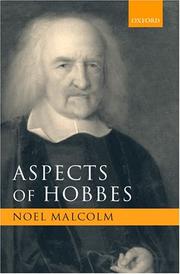
ISBN: 0199247145 0191597996 0199275408 9786611930387 1281930385 0191529982 9780199247141 Year: 2002 Publisher: Oxford Clarendon
Abstract | Keywords | Export | Availability | Bookmark
 Loading...
Loading...Choose an application
- Reference Manager
- EndNote
- RefWorks (Direct export to RefWorks)
Hobbes, Thomas, --- Hobbes, Thomas --- Gobbs, Tomas, --- Hobbs, Thomas, --- Gobbes, Tomas, --- T. H. --- H., T. --- Hobs, Thomas, --- Hobbes, --- Hobbes, Thom. --- Hobbius, Thomas, --- Hobbuzu, Tomasu, --- Huobusi, --- Hobbs, Tho. --- הובס, תומס, --- 霍布斯, --- ホッブズ, トマス, --- Hobbes, Thomas, - 1588-1679
Book
ISBN: 0333616774 0333616782 9780333616789 Year: 1994 Publisher: London Papermac
Abstract | Keywords | Export | Availability | Bookmark
 Loading...
Loading...Choose an application
- Reference Manager
- EndNote
- RefWorks (Direct export to RefWorks)
Bosnia and Hercegovina --- Yugoslavia --- Bosnie-Herzégovine --- Yougoslavie --- History --- Histoire --- Politics --- Bosnia and Herzegovina --- Bosnia and Herzegovina. --- History. --- Bosnie-Herzégovine
Book
ISBN: 9780190262785 0190262788 Year: 2015 Publisher: Oxford ; New York : Oxford University Press,
Abstract | Keywords | Export | Availability | Bookmark
 Loading...
Loading...Choose an application
- Reference Manager
- EndNote
- RefWorks (Direct export to RefWorks)
"In the late sixteenth century, a prominent Albanian named Antonio Bruni composed a revealing document about his home country. Historian Sir Noel Malcolm takes this document as a point of departure to explore the lives of the entire Bruni family, whose members included an archbishop of the Balkans, the captain of the papal flagship at the Battle of Lepanto--at which the Ottomans were turned back in the Eastern Mediterranean--in 1571, and a highly placed interpreter in Istanbul, formerly Constantinople, the capital of the Eastern Roman Empire that fell to the Turks in 1453. The taking of Constantinople had profoundly altered the map of the Mediterranean. By the time of Bruni's document, Albania, largely a Venetian province from 1405 onward, had been absorbed into the Ottoman Empire. Even under the Ottomans, however, this was a world marked by the ferment of the Italian Renaissance. In Agents of Empire, Malcolm uses the collective biography of the Brunis to paint a fascinating and intimate picture of Albania at a moment when it represented the frontier between empires, cultures, and religions. The lives of the polylingual, cosmopolitan Brunis shed new light on the interrelations between the Ottoman and Christian worlds, characterized by both conflict and complex interdependence. The result of years of archival detective work, Agents of Empire brings to life a vibrant moment in European and Ottoman history, challenging our assumptions about their supposed differences. Malcolm's book guides us through the exchanges between East and West, Venetians and the Ottomans, and tells a story of worlds colliding with and transforming one another" "In this fascinating and intimate look at the borderland between East and West--Venetian Italy and Ottoman Albania--distinguished historian Sir Noel Malcolm brings to life not a clash of civilizations so much as their fascinating and nuanced interdigitation. In the late sixteenth century, a prominent Albanian named Antonio Bruni composed a treatise on the main European province of the Ottoman Empire concerning his country's place in the empire. Using that text as a point of departure, Malcolm's Agents of Empire explores and evokes the lives of an eminent Venetian-Albanian family and its paths through the eastern Mediterranean. The family includes an archbishop in the Balkans, the captain of the papal flagship at Lepanto, the power behind the throne in the Ottoman province of Moldavia, and a dragoman (interpreter) at the Porte. Malcolm uses the family's collective biography as a framework on which to build a broader account of East-West relations and interactions in this period. In doing so, he sheds light new light on the interrelations between the Christian and Ottoman worlds, illuminating subjects as diverse as espionage, slave-ransoming and the grain trade, challenging assumptions about the relationship between. The family trees and biography of Antonio Bruni thus reflect a larger story of empire and cultures, and Malcolm's discoveries challenge classic assumptions while also providing an immersive narrative of discovery"
East and West --- History --- Bruni, Antonio, --- Bruti, Bartolomeo, --- Family --- Albania --- Ulcinj (Montenegro) --- Venice (Italy) --- Mediterranean Region --- Turkey --- Relations --- HISTORY / Europe / Western. --- HISTORY / Modern / 16th Century. --- Family. --- East and West - History - 16th century --- Bruni, Antonio, - -1598 --- Bruni, Antonio, - -1598 - Family --- Bruti, Bartolomeo, - -1592 - Family --- Albania - History - 16th century --- Ulcinj (Montenegro) - Biography --- Albania - Relations - Italy - Venice --- Venice (Italy) - Relations - Albania --- Mediterranean Region - History - 16th century --- Turkey - History - Ottoman Empire, 1288-1918 --- Bruti, Bartolomeo, - -1592
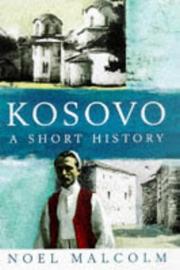
ISBN: 0333666127 Year: 1998 Publisher: Basingstoke Macmillan
Abstract | Keywords | Export | Availability | Bookmark
 Loading...
Loading...Choose an application
- Reference Manager
- EndNote
- RefWorks (Direct export to RefWorks)
#gsdb8 --- 949.71 --- 815 Geschiedenis --- 841 Politiek Bestel --- 844.1 Minderheden --- 846 Identiteit --- 846.1 Etniciteit --- 850 Vrede- en conflictstudies --- 855 Oorlogsvoering --- 884.3 Zuid-Europa
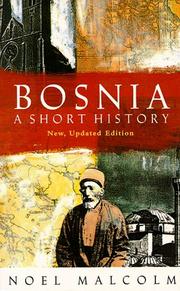
ISBN: 9780814755617 Year: 1996 Publisher: New York : New York University Press,
Abstract | Keywords | Export | Availability | Bookmark
 Loading...
Loading...Choose an application
- Reference Manager
- EndNote
- RefWorks (Direct export to RefWorks)
Book
ISBN: 9780198830139 0198830130 Year: 2019 Publisher: Oxford Oxford University Press
Abstract | Keywords | Export | Availability | Bookmark
 Loading...
Loading...Choose an application
- Reference Manager
- EndNote
- RefWorks (Direct export to RefWorks)
From the fall of Constantinople in 1453 until the eighteenth century, many Western European writers viewed the Ottoman Empire with almost obsessive interest. Typically they reacted to it with fear and distrust; and such feelings were reinforced by the deep hostility of Western Christendom towards Islam. Yet there was also much curiosity about the social and political system on which the huge power of the sultans was based. In the sixteenth century, especially, when Ottoman territorial expansion was rapid and Ottoman institutions seemed particularly robust, there was even open admiration. In this path-breaking book Noel Malcolm ranges through these vital centuries of East-West interaction, studying all the ways in which thinkers in the West interpreted the Ottoman Empire as a political phenomenon - and Islam as a political religion. Useful Enemies shows how the concept of 'oriental despotism' began as an attempt to turn the tables on a very positive analysis of Ottoman state power, and how, as it developed, it interacted with Western debates about monarchy and government. Noel Malcolm also shows how a negative portrayal of Islam as a religion devised for political purposes was assimilated by radical writers, who extended the criticism to all religions, including Christianity itself. Examining the works of many famous thinkers (including Machiavelli, Bodin, and Montesquieu) and many less well-known ones, Useful Enemies illuminates the long-term development of Western ideas about the Ottomans, and about Islam. Noel Malcolm shows how these ideas became intertwined with internal Western debates about power, religion, society, and war. Discussions of Islam and the Ottoman Empire were thus bound up with mainstream thinking in the West on a wide range of important topics. These Eastern enemies were not just there to be denounced. They were there to be made use of, in arguments which contributed significantly to the development of Western political thought. -- Jacket
Turkey --- Turt︠s︡ii︠a︡ --- Turechchyna --- Tyrkia --- Osmanskai︠a︡ Imperii︠a︡ --- Tourkia --- TC --- Türkiye --- Türkiye Cumhuriyeti --- Vysokai︠a︡ Porta --- Osmanlı İmparatorluğu --- Devlet-i Aliye Osmaniye --- Turkiet --- T.C. (Türkiye Cumhuriyeti) --- Republic of Turkey --- תורכיה --- Turkiyah --- Turkyah --- Tunkī --- République turque --- Tʻŏkʻi --- Anatolia --- Asia Minor --- Anatolie --- Republic of Türkiye --- Asia Minore --- Ottoman Empire --- Republik Türkei --- Tureuki --- Turkye --- Republiek van Turkye --- Türkei --- Turcland --- تركيا --- Turkiyā --- جمهورية التركية --- Jumhūrīyah al-Turkīyah --- Turquía --- Republica de Turquía --- Turchia --- Tuykia --- Türkiyä Respublikası --- Turki --- Républik Turki --- Tȯrkiă --- Турцыя --- Turtsyi︠a︡ --- Турэцкая Рэспубліка --- Turėtskai︠a︡ Rėspublika --- Tiakei --- Torkėjė --- Turkia --- Republik Turkia --- Турция --- Република Турция --- Republika Turt︠s︡ii︠a︡ --- Turska --- Republika Turska --- Tū-ī-gì --- Turecko --- Turecká republika --- Tëreckô --- Repùblika Tërecczi --- Tẏrt︠s︡i --- Турци --- Turt︠s︡i --- Турци Республики --- Turt︠s︡i Respubliki --- Twrci --- Gweriniaeth Twrci --- Tyrkiet --- Republikken Tyrkiet --- Tʼóok Bikéyah --- Turkojska --- Republika Turkojska --- Türgi --- Türgi Vabariik --- Τουρκία --- Δημοκρατία της Τουρκίας --- Dēmokratia tēs Tourkias --- Τουρκική Δημοκρατία --- Tourkikē Dēmokratia --- Turchî --- Repóbblica d'l Turchî --- Turkio --- Turkujo --- Turkia Respubliko --- Turkaland --- Lýðveldið Turkaland --- Turquie (Repupblic) --- République de Turquie --- Turkije --- Tuirc --- Poblacht na Tuirce --- Turkee --- Pobblaght ny Turkee --- Thú-ngí-khì --- 터키 --- 터키 공화국 --- T'ŏk'i Konghwaguk --- Tureke --- Turkowska --- Turcia --- Турк --- Turk --- Турчы Республикæ --- Turchy Respublikæ --- Tyrkland --- Lýðveldið Tyrkland --- Repubblica di Turchia --- טורקיה --- רפובליקה הטורקית --- Republiḳah ha-Ṭurḳiyah --- Тюрк --- Ti︠u︡rk --- Тюрк Республика --- Ti︠u︡rk Respublika --- Tu̇rkii︠a︡ --- Tu̇rkii︠a︡ Respublikasy --- Turukiya --- Uturuki --- Jamhuri ya Uturuki --- Tiki --- Tirkiye --- Komara Tirkiyeyê --- Repuvlika de Turkiya --- Turcija --- Turcijas Republika --- Tierkei --- Republik Tierkei --- Turkija --- Turkieë --- Törkieë --- Buturuki --- Ripablik kya Buturuki --- Törökország --- Török Köztársaság --- Турција --- Република Турција --- Republika Turcija --- Whenua Korukoru --- Tū-ī-gì Gê̤ṳng-huò-guók --- Туркамастор --- Turkamastor --- Туркань республиксь --- Turkanʹ respubliksʹ --- Bu̇gd Naĭramdakh Turk Uls --- Tlacatlahtocayotl Turquia --- Republiek Turkije --- トルコ --- Toruko --- トルコ共和国 --- Toruko Kyōwakoku --- Turkii --- Republikken Tyrkia --- Turtchie --- Турций --- Turt︠s︡iĭ --- Тюркия --- Ti︠u︡rkii︠a︡ --- Тюркия Республика --- Ti︠u︡rkii︠a︡ Respublika --- Teki --- Törkie --- Turcja --- Republika Turcji --- República da Turquia --- Republica Turcia --- Republika Turkiya --- Turkya --- Turkiya Republika --- Турція --- Турецка Республіка --- Turet︠s︡ka Respublika --- Турецкая Республика --- Tu̇rkiĭė --- Tu̇rkiĭė Respublikata --- Durka --- Durkka dásseváldi --- Turkäi --- Republik Turkäi --- Turqia --- Republika e Turqisë --- Thekhi --- Turcyjo --- Republika Turecko --- Republika Turcyje --- Jamhuuriyada Turki --- Turkiyakondre --- Ripoliku Turkiyakondre --- Турска --- Република Турска --- Turkki --- Turkin tasavalta --- Republiken Turkiet --- Republika ng Turkiya --- Tturk --- Tagduda n Tturk --- Turchie --- Repubbleche de Turchie --- Tȯrkii︠a︡ --- Tȯrkii︠a︡ Jȯmḣu̇rii︠a︡te --- Türkiýe Respublikasy --- Туреччина --- Турецька Республіка --- Republica de Turchia --- Thổ Nhĩ Kỳ --- Cộng hoà Thổ Nhĩ Kỳ --- Türkän --- Türgü --- Türgü Vabariik --- 土耳其 --- Tu'erqi --- Turkeye --- Republiek Turkeye --- Turkeya --- Tirki --- Republik bu Tirki --- טערקיי --- Ṭerḳay --- טערקישע רעפובליק --- Ṭerḳishe Republiḳ --- Orílẹ̀-èdè Olómìnira ilẹ̀ Túrkì --- Tırkiya --- 土耳其共和國 --- Tu'erqi Gongheguo --- Tu'erqi gong he guo --- Tu er qi gong he guo --- Ānātūlī --- History --- Foreign public opinion, European. --- Islam --- History of Europe --- anno 1500-1799 --- anno 1400-1499 --- Empire ottoman --- Histoire. --- Public opinion, European. --- Islambild --- Rezeption --- 1288-1918 --- Turkey. --- Europa --- Osmanisches Reich --- Westliche Welt --- Political science --- History. --- Cộng hoà Thỏ̂ Nhĩ Kỳ --- Thỏ̂ Nhĩ Kỳ --- Турций --- Islambild. --- Rezeption. --- 1288-1918. --- Europa. --- Osmanisches Reich. --- Westliche Welt. --- Ottoman Empire, 1288-1918
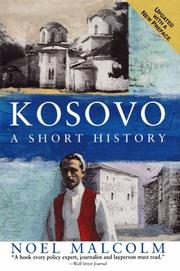
ISBN: 0060977752 9780060977757 Year: 1999 Publisher: New York, N.Y. New York University Press
Abstract | Keywords | Export | Availability | Bookmark
 Loading...
Loading...Choose an application
- Reference Manager
- EndNote
- RefWorks (Direct export to RefWorks)
Kosovo (Serbia) - History. --- Kosovo (Serbia) - Ethnic relations --- History of Southern Europe --- Kosovo --- Kosovo (Serbia)
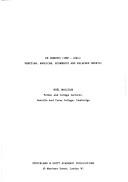
ISBN: 9780947891008 0947891005 Year: 1984 Publisher: London: Strickland and Scott Academic Publications,
Abstract | Keywords | Export | Availability | Bookmark
 Loading...
Loading...Choose an application
- Reference Manager
- EndNote
- RefWorks (Direct export to RefWorks)
Anglican Communion --- Ecumenists --- Conciliar theory --- Adiaphora --- Christian union --- De Dominis, Marco Antonio, - 1560-1624
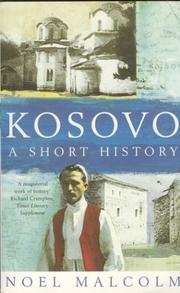
ISBN: 0333666135 Year: 1998 Publisher: London : Papermac,
Abstract | Keywords | Export | Availability | Bookmark
 Loading...
Loading...Choose an application
- Reference Manager
- EndNote
- RefWorks (Direct export to RefWorks)
Book
ISBN: 0006388442 Year: 1997 Publisher: London Fontana
Abstract | Keywords | Export | Availability | Bookmark
 Loading...
Loading...Choose an application
- Reference Manager
- EndNote
- RefWorks (Direct export to RefWorks)
Poetry --- English literature --- anno 1600-1699
| Listing 1 - 10 of 32 | << page >> |
Sort by
|

 Search
Search Feedback
Feedback About UniCat
About UniCat  Help
Help News
News